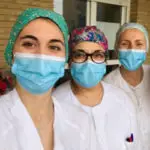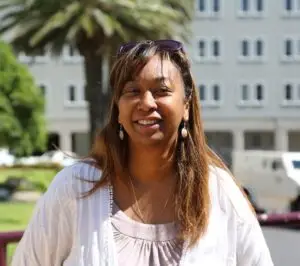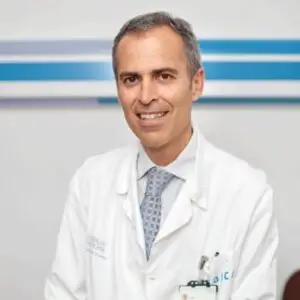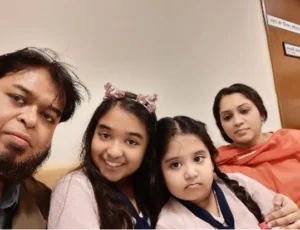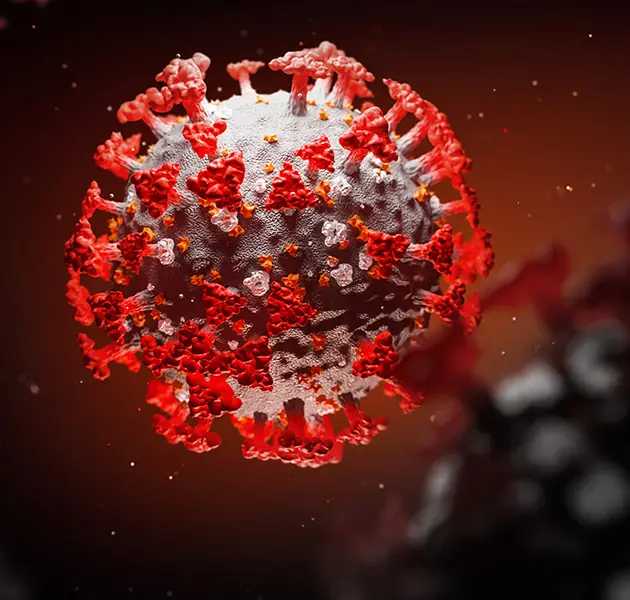
Our health system was not prepared to deal with a pandemic. My hospital, the Hospital Royo Villanova in Zaragoza, Spain, was full of COVID-19 cases at the highest peak of the crisis in April, so much so that the ICU became overcrowded and the operating room and other areas had to be rehabilitated as ICUs. Other health centers experienced a similar situation: masks were sent on a drip —we had to reuse some of them— and gowns that were used one day would get disqualified the next. We couldn’t even get tested for COVID-19 because there weren’t enough tests for the patients. Hospitals were understaffed and started hiring recent graduates, very young people who did a wonderful job and showed a true passion for their profession.
I remember being afraid when the Ebola crisis hit us six years ago. I wasn’t now -we truly learned a lot from that experience- but it was still an unfamiliar and overwhelming situation. We had no more than a few suspected cases of Ebola in my hospital, and now every ward of the hospital was infected with the new virus. There was not an official established protocol on protective equipment when I saw my first COVID-19 suspected patient. I would leave the hospital feeling very tired, but it was more mental tiredness than physical fatigue. The sight of the patients in total solitude was miserable, not to mention the people who died. The relatives couldn’t even say their goodbyes. All the healthcare personnel who went through this situation is going to be very affected by it.
I want to believe that what happened to me was the consequence of stress. I live with my 91-year-old mother, and when the pandemic hit, we started living separate lives. I had this fear that I would be infected with the virus but showed no symptoms and that I could pass it on to her. We used to eat at different times, she was in her room, I was in my room, and we took all the safety measures we could. During that time, I didn’t feel stressed. What happened to me showed such anodyne symptomology that I never considered I was having a heart attack. It had been a week since we’ve had any COVID-19 cases in my hospital area. I worked during the night of 23 April and fell asleep when I returned home midday. I woke up with terrible neck pain and took some medication; I had to feel okay to work the following day. That night, I went to sleep. When I opened my eyes next, I was lying on the floor. I didn’t know how I ended up there. I felt no pain, and because I was asymptomatic, I thought I was experiencing the side effects of the medication. I went back to bed but suddenly started to sweat coldly and profusely. I asked my partner to take me to the hospital. Once there, the doctors ordered an urgent blood test and electrocardiography. I discovered I was hemorrhaging.
The last thing I remember, I was being carried to the emergency room. A big shock for me. From thinking that I was undergoing the medications’ side effects to be suffering a heart attack. What could have happened to me if I didn’t get to the hospital… I would not be here. Later they told me I had suffered a myocardial infarction. The hemorrhage had broken the pericardial wall and I’ve had the “good luck” that a clot from the hemorrhage had plugged the wall. Doctors stopped the hemorrhage and used a bovine pericardial patch in the reconstruction. I had no idea plugs could be made of animals. Now my partner likes to start our conversations by saying, “How are you, bovine heart?”. I have a piece of heart from that species and I’m very grateful for it.
The post-op was good, and I was discharged earlier than expected. The surgical wound breaks your sternum and hurts later when you stand up or lie down, but I haven’t needed help at home or at the hospital. I try not to make any physical efforts. I have always been hypertensive, I discovered this with the medical examination I took during the Ebola crisis, and I already was taking medication for it but it was controlled. The cardiologist said he didn’t see any other pathology. We never discovered why this happened to me, although I believe it was due to a stressful situation.
I finally see everything that I’ve been through. Since it is your job and you like it, you do not realize the gravity of your situation sometimes, but this profession is impossible to perform if it is not vocational. There are circumstances you could not handle if you didn’t like what you do. I hope that the pandemic will prompt health authorities to act and give healthcare workers enough resources when something like this happens again. From my part, I’ve been taking it slowly. I’m having my medical consultations remotely; my doctor calls me every week to check up on me. I went outside for the first time a few weeks ago to go to the hairdresser. I walk slowly, not at my usual normal pace, but I’m trying to go a little further every day.
Picture: Teresa (in the centre) with her colleagues.
